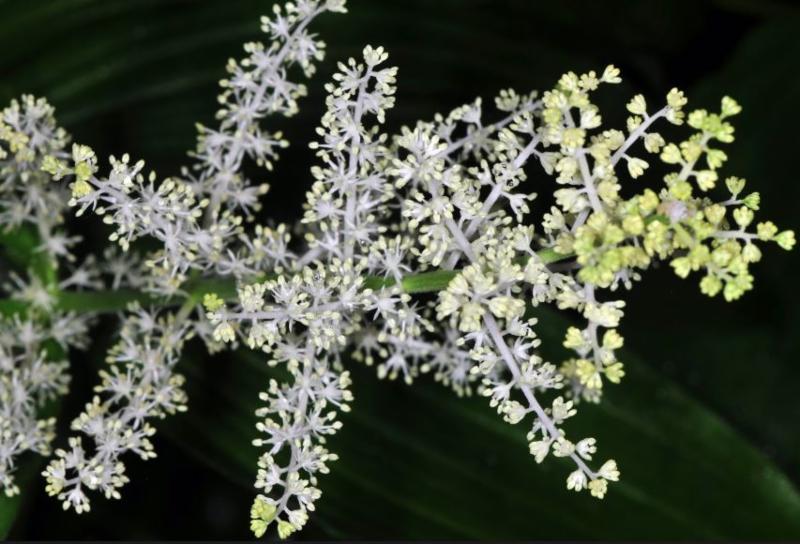The winner of the 2018 GCA Plant of the Year is a pollinator magnet! Pycnanthemum muticum, commonly known as mountain mint, is a native perennial that attracts such an abundance of diverse bees, butterflies, moths and other beneficial insects that it has been described as providing “wildlife TV!” It is an excellent source of nectar but also attracts predatory and/or parasitoid insects that prey upon pest insects. This easy-to-grow ornamental plant has noteworthy blue-green foliage, silvery bracts, aromatic leaves, and pinkish to white flowers that bloom from July through September. It naturalizes politely and provides an attractive upright and tiered clump that is 2-3 feet high and just as wide. Pycnanthemum muticum grows in USDA Zones 4 to 8, in full sun, partial shade, both drought and wet conditions, and helps with erosion control. It is resistant to diseases, insects, deer, rabbits and rodents, and happily grows from Maine to Michigan and south to Florida and Texas.
Honorable Mention was awarded to Maianthemum racemosum, formerly known as Smilacina racemosa and commonly known at false Solomon’s seal. Maianthemum racemosum is a three-season woodland beauty. In the spring, it flaunts beautifully fragrant white panicle flowers. The graceful architectural form provided by the arching stems and ridged green leaves carries the plant through summer. In the fall, the foliage turns a warm rich yellow and the flowers turn into showy red berries. This natural colonizer grows in shade or partial shade and is extremely resilient, adaptable, low-maintenance and hardy. It grows 2 to 3 feet high and just as wide in moist or dry conditions. Maianthemum racemosum is hardy in USDA growing Zones 3 to 9 and is located in every state in the U.S. except Hawaii. The fragrant flowers provide nectar for butterflies and bees, the foliage provides food for grazing elk and bear, and the berries become food for the birds and small animals in fall and winter.

For more information about The GCA’s Plant of the Year Winners and the Freeman Medal, visit the GCA website by clicking here.
